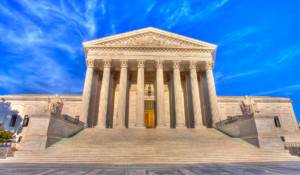 States across the country are pushing to have personal finance added to the mandatory curriculum for high school students. Pennsylvania lawmakers have made the push this week, but North Carolina lawmakers made the push in mid-summer.
States across the country are pushing to have personal finance added to the mandatory curriculum for high school students. Pennsylvania lawmakers have made the push this week, but North Carolina lawmakers made the push in mid-summer.
The NC state Senate voted 42-3 on a bill that would require high school students across the state to complete a personal finance class to be able to graduate.
The class would cover the true cost of credit, car loans, mortgages, credit scores and college loans. Lawmakers across the country want to better prepare students for their financial future by helping students better manage their money.
“Individuals often cause significant damages to their financial lives in their younger years. The damage can be extensive,” explains Scott Langdon of Money Task Force.
Mandatory personal finance would help students avoid the personal loan trap that 35% of millennials mark as their biggest financial milestone. Student loan debt has soared, and many of these students will end their college education with over $40,000 in debt to repay.
Senator Jay Chaudhuri championed the finance class and pushed for it to be a standalone class. The amendment was rejected by backers.
Teachers have come out against the bill, with social studies teachers lodging the most complaints. Social studies teachers claim that personal finance is already taught in civics class and claim that the issue is deeper than understanding finances. One teacher claims that systematic issues, such as lack of living wages and benefits, are the real issue and not lack of personal finance knowledge.
Nationwide, nineteen states have pushed for financial literacy in schools, up from 13 in 2011. These schools require that their students pass a personal finance class to obtain their high school diploma.
NC teachers are concerned that the addition of a personal finance class will push out classes on U.S. history to make room for a new personal finance class. Students are required to pass four social studies classes to graduate: Civics and Economics, World History, American History 1 and American History 2.
The personal finance requirement would prevent the State Board of Education from requiring more than four classes to be required for social studies. The two required courses under the law would be civics and personal finance, meaning that either American History 2 or World History would be removed from the curriculum.
North Carolina is only one of two states in the country which has multiple American History classes.


